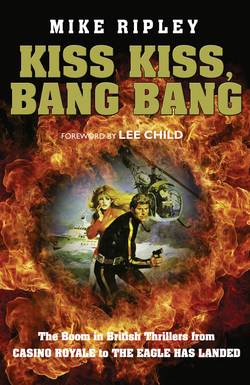Читать книгу Kiss Kiss, Bang Bang: The Boom in British Thrillers from Casino Royale to The Eagle Has Landed - Mike Ripley, Mike Ripley - Страница 15
Chapter 6: TRAVEL BROADENING THE MIND
ОглавлениеOne of the main attractions of British thrillers in the boom times of the Sixties and Seventies, apart from the excitement and escapism provided by their fantastical plots, was their ability to provide extremely cheap foreign travel without the reader having to actually move. It was, to be sure, the era of cheap packaged holidays at a time when a relatively young population had disposable incomes and between 1960 and 1967, the number of Britons holidaying abroad more than doubled to around the 5 million mark. For the vast majority, though, ‘abroad’ was still an undiscovered country.
The first charter flight of holidaymakers from Britain had taken off for Corsica back in 1950 and the first passenger jet flew in 1952. The Convention on International Civil Aviation in 1954 relaxed their rules to allow for more charter flights and in 1957 BEA (British European Airways) established a route to Valencia in Spain and it is said that the term ‘Costa Blanca’ was invented to promote it. Dover–Calais car ferries offered the motorist a chance to explore the continent from 1953, the first Channel crossing by a hovercraft in 1959 offered the prospect of a far shorter (though notoriously more turbulent) journey, and in 1962 the first Thomson package holiday took eighty-two sun-seekers to Palma for thirteen days at a cost of around £42 a head.
British governments, however, seemed determined not to let the population have too much travel, or too good a time when they got there. Currency restrictions imposing a £50 allowance on travellers were introduced after WWII as an austerity measure, abolished in 1959 by a Conservative government to prove that we had never had it so good, and then reintroduced in 1966 by a Labour government desperate to fend off a devaluation of the pound.1 One disgruntled Conservative MP commented that the paltry allowance resulted in impoverished British travellers abroad being ‘regarded as lower than Albanian tourists’. Victor Canning called it ‘scraping along on a £50 travel allowance’ but writers, of course, would almost certainly have got away with a larger allowance on the basis that their trips abroad were vital ‘research’.
Foreign travel may have been a minority sport2 but the possibility was now there and certainly there was a thirst for knowledge – at least in popular fiction – of foreign locales for, after all, foreign parts invariably meant thrills and excitement. For most Britons the very act of crossing a border was seen as an adventure in itself, an attitude which was said, unfairly, to apply to the English rather than the British as a whole – even when they travelled to Scotland.
